Welcome to a world where fitness meets functionality! If you’re tired of mundane workouts that leave you feeling disconnected from your everyday life, it’s time to embrace the power of functional fitness training. In this blog post, we’ll delve into the best real-world exercises that will not only sculpt your physique but also enhance your daily performance.
Functional fitness is all about mimicking movements we encounter in our day-to-day activities, focusing on building strength, agility, and flexibility for real-life scenarios. From lifting groceries to tackling stairs with ease, these exercises train your body to function optimally, making your everyday tasks effortless.
Join us as we unveil a curated collection of the most effective exercises that will invigorate your routine. Whether you’re a fitness enthusiast or a beginner seeking a practical approach to fitness, this post will provide you with valuable insights and step-by-step instructions on how to incorporate these exercises into your regimen. Get ready to discover a whole new dimension of fitness that goes beyond the confines of the gym. Let’s dive into the world of functional fitness and unlock your true potential!
What Is Functional Fitness Training
Functional fitness training is a type of exercise that focuses on improving your ability to perform everyday movements and activities with ease and efficiency. Unlike traditional workouts that isolate specific muscle groups, it engages multiple muscles and joints simultaneously to enhance strength, stability, balance, flexibility, and mobility.
Furthermore, the exercises performed in functional fitness training mimic real-life tasks like lifting, pushing, pulling, and carrying objects, making them highly practical and applicable to daily life. By training your body to move functionally, you develop the strength and agility needed to perform tasks more effectively and reduce the risk of injuries.
Best Functional Fitness Training
Are you ready to take your fitness journey to new heights? Look no further! In this blog post, we’ve handpicked the seven best functional fitness training that will revolutionize your workouts and propel you towards real-world excellence.
Deadlifts
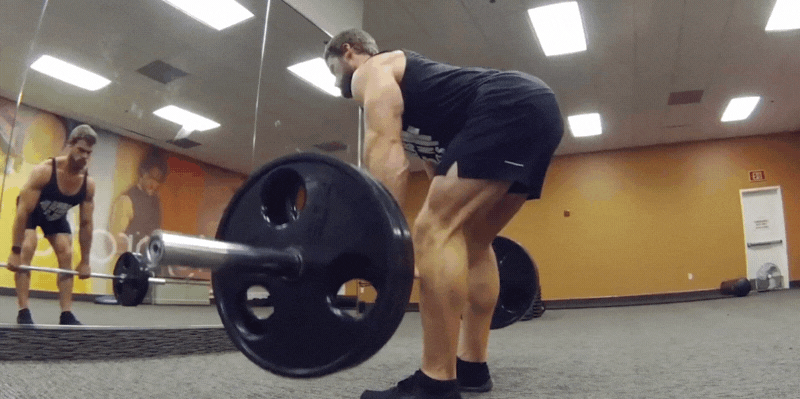
Master the art of lifting heavy objects with proper form. Deadlifts not only strengthen your posterior chain but also improve your posture and core stability, making them essential exercises for everyday activities like picking up groceries or moving furniture.
Farmer’s Walk
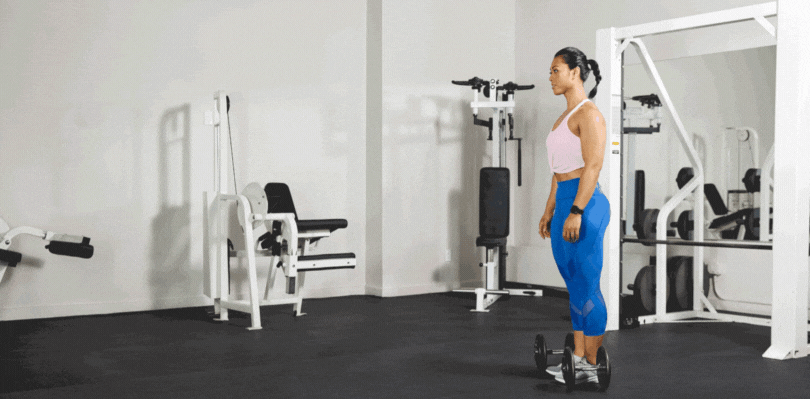
Embrace the challenge of carrying heavy weights in each hand and feel the burn in your forearms, shoulders, and legs. This exercise not only enhances grip strength but also simulates the demands of carrying bags or suitcases, ensuring you’re prepared for any physical task.
Squats
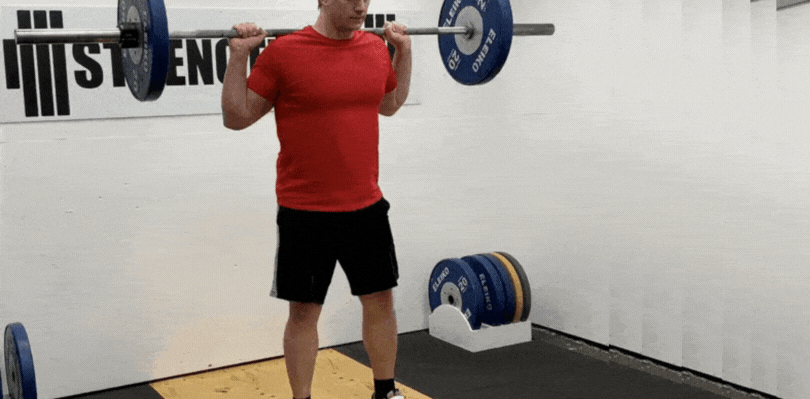
Transform your lower body strength and functional mobility with squats. This fundamental exercise targets your quadriceps, hamstrings, and glutes, providing the foundation for activities such as sitting down and standing up effortlessly.
Push-Ups
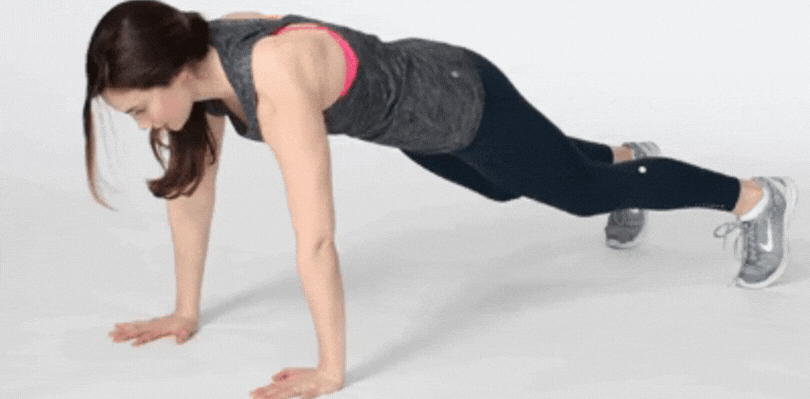
Strengthen your chest, shoulders, and triceps while improving your upper body pushing strength. Push-ups mimic actions like pushing open doors or getting up from the ground, making it an invaluable exercise for functional fitness enthusiasts.
Planks
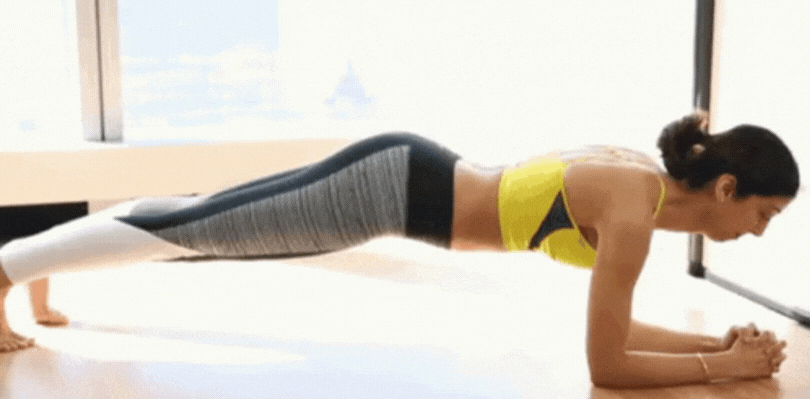
Develop a rock-solid core and improve stability through planks. This static exercise engages multiple muscle groups, including your abs, back, and shoulders, fostering better balance and posture for daily movements like carrying heavy loads.
Medicine Ball Throws

Unleash your explosive power with medicine ball throws. These dynamic movements engage your entire body, mimicking actions like throwing a ball or even pushing a heavy object with force.
Burpees

Elevate your heart rate and challenge your full body with burpees. This intense exercise combines a squat, plank, push-up, and jump, providing a comprehensive workout that improves cardiovascular endurance and full-body coordination.
By incorporating these seven functional fitness training into your routine, you’ll not only achieve a sculpted physique but also enhance your overall performance in real-world situations. Embrace the power of it and unlock your true potential today!
Benefits Of Functional Fitness Training
Functional fitness training offers a multitude of benefits that extend beyond the realms of traditional workouts. Let’s explore six key advantages of incorporating these real-world exercises into your fitness routine:
Enhanced Everyday Performance
Functional fitness exercises focus on movements that mimic real-life activities, such as lifting, pushing, pulling, and carrying. By training your body to perform these functional movements with efficiency and strength, you’ll notice significant improvements in your daily tasks. From effortlessly lifting heavy grocery bags to tackling stairs with ease, functional fitness enhances your overall performance in day-to-day activities.
Increased Functional Strength
Unlike isolated exercises that target specific muscles, functional fitness workouts engage multiple muscle groups simultaneously. This approach develops functional strength, allowing your body to work as a cohesive unit. By improving your core stability, balance, and overall strength, you’ll experience enhanced power and control in performing various physical tasks.
Improved Balance And Stability
Functional fitness exercises often require you to engage your core and stabilize your body while performing dynamic movements. This emphasis on balance and stability translates into improved coordination and reduced risk of falls or injuries in real-world scenarios. Whether you’re navigating uneven terrain or participating in sports, a strong foundation of balance and stability is crucial.
Enhanced Flexibility And Mobility
Functional fitness workouts incorporate exercises that promote flexibility and mobility across multiple joints. By performing movements through a full range of motion, you’ll increase joint flexibility, muscle elasticity, and overall mobility. This flexibility translates into greater ease of movement during everyday activities, allowing you to bend, twist, and reach with improved efficiency.
Injury Prevention
Functional fitness exercises emphasize proper movement patterns, body alignment, and functional form. By strengthening the muscles and improving joint stability, these exercises can help prevent injuries by reducing the strain placed on vulnerable areas. Additionally, functional fitness promotes better body awareness and proper posture, which further reduces the risk of injury during physical tasks.
Enhanced Core Strength And Posture
Functional fitness workouts heavily engage the core muscles, including the abdominals, lower back, and pelvic floor. Strengthening these muscles not only improves your balance and stability but also promotes a healthy posture. By maintaining proper alignment and a strong core, you’ll alleviate back pain, improve spinal support, and enhance your overall posture.
Incorporating this training into your exercise routine can lead to a host of benefits that directly impact your daily life. From improved performance and strength to enhanced mobility and injury prevention, these exercises offer a holistic approach to fitness that goes beyond the confines of the gym. Embrace it and unlock a world of functional excellence today!
Tips And Tricks For Functional Fitness Training
When it comes to maximizing the effectiveness of your functional fitness training, it’s essential to have a solid plan and approach. Here are six tips and tricks to help you make the most out of your real-world exercises:
Start With A Solid Foundation
Before diving into advanced functional fitness exercises, focus on building a strong foundation. Master the basic movements and ensure you have proper form and technique. This includes exercises like squats, lunges, and planks, which develop core strength, stability, and flexibility necessary for more complex movements.
Incorporate Variety
Keep your workouts fresh and engaging by incorporating a variety of functional exercises. Include exercises that target different muscle groups and movement patterns to ensure a well-rounded training program. This not only prevents boredom but also challenges your body in different ways, promoting overall strength and functionality.
Progress Gradually
As you become more comfortable with functional fitness exercises, progressively increase the difficulty and intensity. This could involve adding resistance, increasing repetitions, or performing advanced variations of the exercises. Gradual progression ensures that you continue to challenge your body and make consistent gains in strength and performance.
Focus On Functional Movements
Choose exercises that closely resemble movements you encounter in your daily life. Consider the actions you perform regularly, such as lifting, carrying, pushing, or pulling, and select exercises that mimic those movements. This specificity will improve your functional strength and transferability to real-world tasks.
Emphasize Core Stability
Core strength and stability are paramount in functional fitness. Engage your core muscles consciously during exercises by maintaining proper alignment and activating your abdominals, obliques, and lower back. Strengthening your core not only enhances your overall performance but also helps prevent injuries and improves posture.
Incorporate Functional Training Tools
Experiment with functional training tools such as kettlebells, medicine balls, resistance bands, or suspension trainers. These tools add variety, challenge different muscle groups, and simulate real-world scenarios more effectively. Incorporating functional training equipment into your workouts can enhance your overall strength, stability, and coordination.
Remember to listen to your body, prioritize proper form, and gradually increase the intensity of your workouts. Consistency and patience are key to long-term success in functional fitness training. By following these tips and tricks, you’ll optimize your workouts, improve functional strength, and excel in real-world activities with ease.
FAQs
What is functional fitness training, and how is it different from traditional workouts?
Functional fitness training is a form of exercise that focuses on improving your ability to perform real-life movements and tasks efficiently. Unlike traditional workouts that often isolate specific muscles or body parts, it incorporates exercises that engage multiple muscle groups and joints simultaneously. The aim is to enhance overall strength, stability, balance, flexibility, and mobility, with a specific emphasis on movements that mimic daily activities. These workouts prepare your body for real-world tasks such as lifting objects, climbing stairs, bending, twisting, and reaching, making your daily life easier and more functional.
Who can benefit from functional fitness training?
Functional fitness training is beneficial for individuals of all fitness levels and ages. Whether you’re a seasoned athlete, a fitness enthusiast, or a beginner, these exercises can be tailored to meet your specific needs and goals. It’s particularly useful for individuals who want to improve their physical performance in day-to-day activities, such as parents carrying their children, older adults maintaining independence, or athletes seeking to enhance their sports performance. This training is adaptable and can be modified to accommodate different fitness levels, making it accessible to a wide range of individuals.
Can functional fitness training help prevent injuries?
Yes, functional fitness training can be an effective strategy for injury prevention. Focusing on improving functional movements, enhancing core strength and stability, and promoting proper body mechanics, can help reduce the risk of injuries in daily life and sports activities. The emphasis on functional movements, balanced muscle development, and joint stability helps create a well-rounded body that is less prone to imbalances and overuse injuries. Additionally, by incorporating exercises that improve balance, coordination, and flexibility, functional fitness training helps enhance body awareness and proprioception, further reducing the likelihood of accidents and injuries. However, it’s important to ensure proper form, progress gradually, and listen to your body to minimize the risk of injury during the training.

